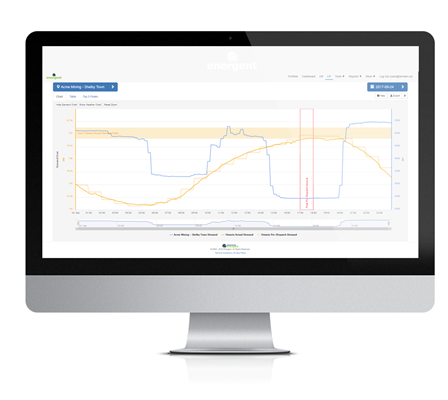The Market Surveillance Panel (MSP) prepares semi-annual monitoring reports on the IESO-administered markets.
The MSP delivered its latest Monitoring Report on IESO-Administered Electricity Markets for the period from November 2012 – April 2013.
Key highlights of the report include:
- Ontario demand totaled 142.11 TWh in the 2012/13 Annual Period, an increase of 2.3 TWh relative to the period May 2011 to November 2012 (the “2011/12 Annual Period”). A month-to-month comparison shows that Ontario demand was higher in every month relative to the 2011/12 Annual Period, with the exception of September and December 2012.
- For the 2012/13 Annual Period, the average Hourly Ontario Energy Price (HOEP) was $25.89/MWh, a 1.56% decrease from the 2011/12 Annual Period’s average of $26.30/MWh.
- The Global Adjustment (GA) for the 2012/13 Annual Period averaged $45.16/MWh for all Ontario consumers, representing a $2.82/MWh or 6.7% increase from the 2011/12 Annual Period. However, while the average GA paid by large industrial consumers directly connected to the IESO-controlled grid remained largely unchanged at $23.58/MWh, other consumers saw a 7.2% average increase in their GA (to $47.88/MWh).
- The average effective electricity price (the sum of HOEP, GA, and uplift charges) increased by 2.8% in the 2012/13 Annual Period to $74.71/MWh.
- The HOEP exceeded $200/MWh in five hours during the during the Winter 2013 Period.
- The HOEP was negative in 43 hours during the Winter 2013 Period
The Panel makes four recommendations in this report. The first recommendation is related to CMSC payments associated with constrained-off intertie transactions. The remaining three recommendations are related to EDAC and the IESO’s generation cost guarantee programs.
Recommendation 2-1
The Panel recommends that the IESO eliminate constrained-off Congestion Management Settlement Credit (CMSC) payments for all intertie transactions, with due consideration to the interplay between the elimination of negative CMSC payments and Intertie Offer Guarantee payments.
Recommendation 3-1
The Panel recommends that the IESO provide a detailed analysis to confirm whether the real-time generation cost guarantee (RT-GCG) program continues to be needed in light of the implementation of the enhanced day-ahead commitment process (EDAC), of changes in Ontario’s generation capacity, and of other changes in the market since the RT-GCG program was introduced.
Recommendation 3-2
If the IESO, after performing its detailed analysis, determines that the RT-GCG program continues to be needed, the Panel recommends that the IESO modify the RT-GCG program such that the revenues that are used to offset guaranteed costs under the program are expanded to include any profit (revenues less incremental operating costs) earned (a) on output above a generation facility’s minimum loading point during its minimum generation block run time (MGBRT), and (b) on output generated after the end of the facility’s MGBRT.
Recommendation 3-3
The Panel recommends that the IESO re-examine the question of integrating exports into EDAC to reduce the need to commit additional generation in real-time to meet export demand that currently only appears in the market in real-time. While the Panel is not recommending a specific approach for integrating exports, the following have been identified as potential options:
a) introduce a mechanism that encourages exports to bid in EDAC; or
b) include a forecast of exports when commitments are made under EDAC.


